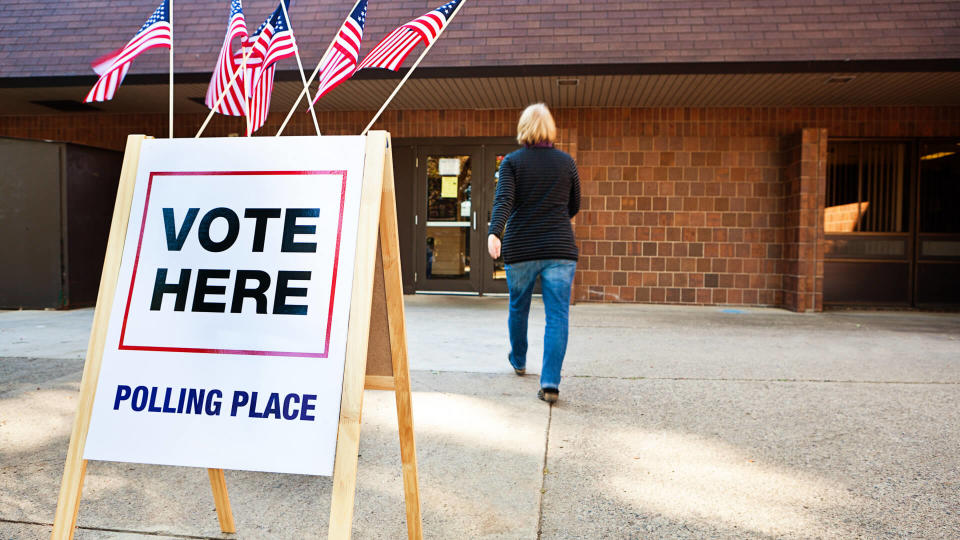I’m an Investment Advisor: Here Is How Presidential Elections Can Affect the Stock Market

The impact of presidential elections can reach far and wide — even affecting the stock market. But how?
John Jones, investment advisor representative at Heritage Financial in Newberry, Florida, said presidential elections historically have provided volatility to the market.
Check Out: I’m an Investor — I’m Making These Money Moves Immediately If Trump Wins
Learn More: 6 Subtly Genius Things All Wealthy People Do With Their Money
“Due to how uncertain the outcome is, markets have shown volatility, as investors are awaiting who will be in office,” he explained. “Similarly, as the policies and priorities of the administration are solidified in the months following elections, markets can continue to provide corrections.”
Should you sell stock before the election?
Wealthy people know the best money secrets. Learn how to copy them.
Trends or Patterns Investors Should Be Aware Of
Jones said not all elections and Novembers are as important as others, but presidential elections have shown the greatest average variation in cross-sector effects.
“The most notable trend, in my opinion, during election years, would be the November effect,” Jones said. “In a study published by S&P Dow Jones Indices, the November effect concludes that cross-sector effects in the S&P 500 were greater than average in 71% of presidential election months.
“Results were consistent among cap and equal weighted S&P 500 indexes, and similarly cross-sector effects were 63% higher in congressional election Novembers, 47% higher in non-election Novembers, and 44% high in non-November months.”
Discover More: 3 Types of Investments Predicted To Plummet in Value in Summer 2024
Sectors That Tend To Be More Volatile During Election Cycles
Jones said the sectors that tend to have more volatility depend on the candidate and the policies the administration is advocating.
“Depending on the candidate, proposed regulations and the particular election, which sectors will have more focus will vary,” he said. “I urge individuals to do their own research into the policy proposed by each candidate and the speculated outcome of either’s election to the presidency.”
In this election, Jones said, healthcare, financials, energy and technology would be the sectors he would place the most focus on. However, he cautioned that this is not a comprehensive evaluation, and his personal opinion could change with a policy proposal from a candidate.
Jones added that healthcare has been a significant topic among candidates, as Medicare and Medicaid are crucial issues affecting the federal deficit. He also noted that financial markets will pivot based on federal decisions and the inflationary environment.
Should Investors Adjust Their Portfolios Before an Election?
“Elections produce volatility, and volatility produces fear among many investors I’ve worked with if they are not properly allocated,” Jones said. “Some choose to sit it out and await a certain outcome before becoming invested, but a very interesting study released by the Charles Schwab Center for Financial Research concluded that staying invested without regard for the political party in power produces significantly more financial gain long term.”
Jones said that having a sound financial plan so you’re properly allocated to withstand election volatility is essential.
“Studies have provided evidence that proper timing of sector-rotation strategies surrounding elections can provide profitable, but likewise, if one’s decision is wrong, it can also result in great financial loss,” he said. “I always encourage one to maintain a properly balanced allocation within their portfolio with reasoning for each position included. And the ability to tactically provide more weight to certain positions with reasoning to support this allocation can provide added adaptability.”
How Proposed Policies and Politics Influence Market Reactions
Jones said, “Repositioning your portfolio upon policy changes and administration sentiment can be a speculative strategy, and candidate proposals can play significant effects on sectors.
“As candidates propose certain policies and the election outcomes become more apparent, some sectors may perform more favorably or poorly than others due to the apparent effects of the legislation outcome.”
Jones said the two major outcomes of discussion for this election are inflation and taxes.
“With inflation, if monetary policy is tightened for too long, the economic growth can experience some pains, and the interest on the federal deficit will accelerate at an exceptional pace,” he explained. “If monetary policy is loosened too soon, then we may experience significant return of inflation, in addition to the growing federal deficit.
“With the Tax Cuts and Jobs Act currently sunsetting in two years in conjunction with our federal deficit, this is a topic that must be addressed and mathematically solved rather than speculated among parties. Time will tell what the effect for markets will be under this consideration.
“In either scenario,” Jones said, “having an appropriate financial plan where one can withstand the election volatility and maintain exposure with adaptability for active management to certain sectors is crucial.”
Editor’s note on election coverage: GOBankingRates is nonpartisan and strives to cover all aspects of the economy objectively and present balanced reports on politically focused finance stories. You can find more coverage of this topic on GOBankingRates.com.
More From GOBankingRates
This article originally appeared on GOBankingRates.com: I’m an Investment Advisor: Here Is How Presidential Elections Can Affect the Stock Market